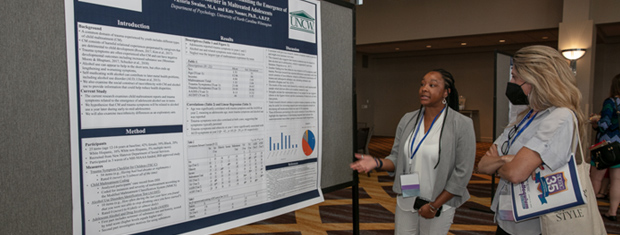




The APSAC Advisor is a peer reviewed quarterly news journal for professionals in the field of child abuse and neglect.
The APSAC Advisor provides succinct, data-based, practice-oriented articles that keep interdisciplinary professionals
informed of the latest developments in policy and practice the field of child maltreatment. It is designed to highlight
best practices in the field and publish original articles and current information about child maltreatment for professionals
from a variety of backgrounds including medicine, law, law enforcement, social work, child protective services, psychology,
public health and prevention in the U.S.
 If you wish to learn more about submitting an article to the Advisor, please click here.
If you wish to learn more about submitting an article to the Advisor, please click here.
This library contains Advisor issues dating back to the first issue in 1988. The most recent issue appears at the top.
Scroll down to select past issues by year and issue number. Once a publication appears in the box, you
can use the Enlarge button to open the document in a new window or tab (depending on how your browser is set up).
This will allow you to view the document with larger print.
To print a document, first use the Enlarge button to open the document in a new window or tab. Then use your browser's Print command.
To return here from a new tab, close the tab. To return from a new window, click your browser's Back button.
In the listing below, click on a year and issue number to see the articles in that publication.
2006 Number 3
At Issue: ICWA and MEPA/IEPA: Injustice Guaranteed
The concept of race has no biological or genetic legitimacy. Yet, it remains a powerfully destructive social construct with a legacy of exploitation, degradation, and obdurate inhumanity. To a lesser degree today, racism and other destructive ethnocentric dynamics are part of interpersonal and systemic dynamics within our country. Race doesn’t exist, but racism does. This has significant implications for adoptive placements of minority children within child welfare practice.
Barriers to Services Among Women in Substance Abuse Treatment: Implications for Child Welfare
In many localities, the child welfare system has become a de facto substance abuse treatment system due to the number of cases involving parental alcohol or drug abuse (Wells & Shafron, 2005). Consequently, parental substance abuse treatment is frequently a component of child welfare service plans.
Delivering Parent Training to Families At Risk to Abuse: Lessons From Three Meta-Analyses
The profound responsibilities of child welfare workers cannot be overstated because vulnerable children and adults are heavily influenced by the services these workers and other service providers deliver. Child welfare and other services can affect children’s immediate and long-term physical welfare, emotional and social well-being, and opportunities for future success as well as parents’ self-esteem, sense of competence, and satisfaction with childrearing.
The purpose of Journal Highlights is to alert readers to current literature on child abuse. Selected articles from journals representing the variety of disciplines reflected in APSAC's membership are presented in the form of an annotated bibliography.
APSAC Advisor 18(3): Full Issue